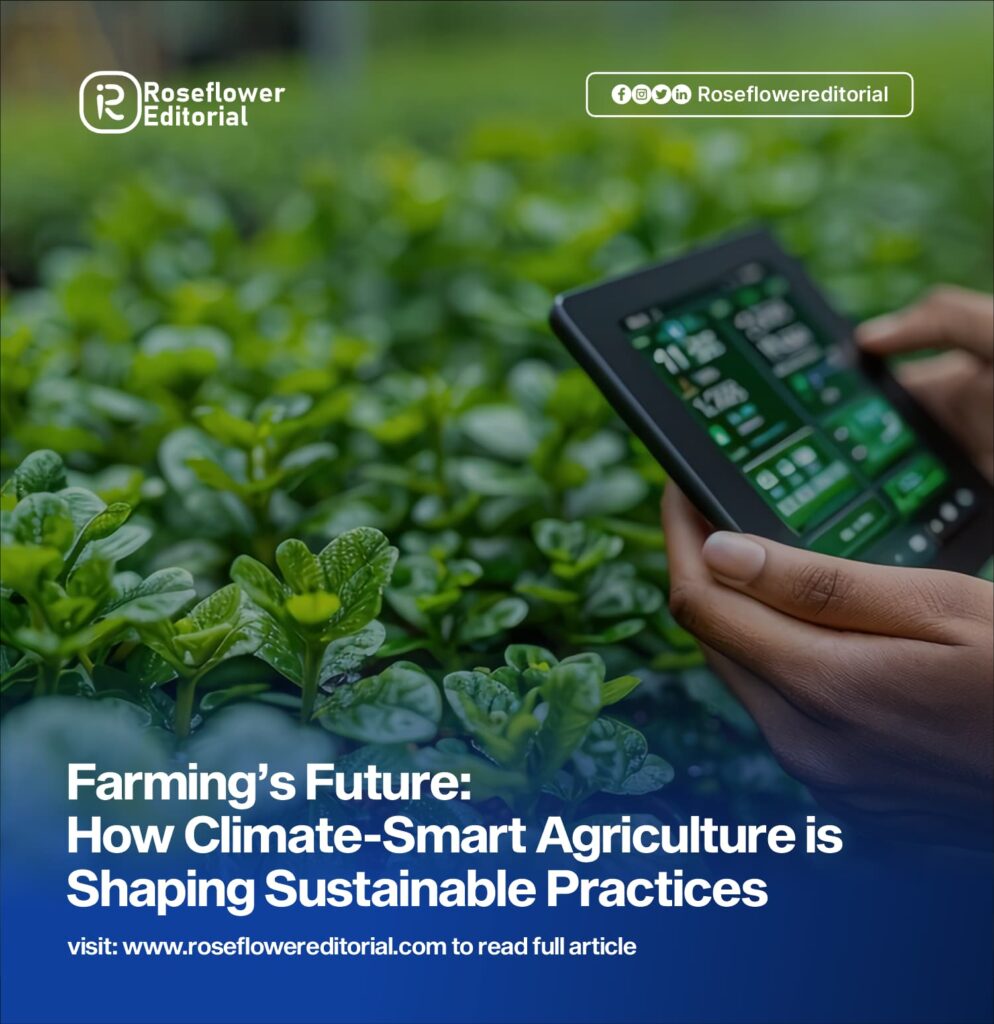
Can Farming Adapt to Climate Change and Stay Sustainable?
How can agriculture meet the challenges of climate change while boosting productivity and protecting the planet? Unpredictable weather, rising global temperatures, and extreme climate events are straining traditional farming methods. Enter Climate-Smart Agriculture (CSA)—an innovative approach that enhances resilience, reduces environmental impact, and sustains yields in a warming world.
As one agricultural expert remarked:
“The key to a sustainable future lies in practices that nourish both people and the planet.”
Climate-Smart Agriculture: A Game-Changer for Modern Farming
Climate-smart agriculture integrates cutting-edge methods to counter climate change while optimising farming practices. Key strategies include:
Precision Agriculture: Technologies like drones, GPS, and soil sensors reduce waste, conserve water, and optimise fertiliser use.
Agroforestry: Blending trees, crops, and livestock restores soil health, boosts biodiversity, and stores carbon.
Drought-Tolerant Crops: Designed to thrive in arid conditions, these crops ensure food security in water-scarce regions.
Drip Irrigation: Delivers water precisely where needed, reducing usage by up to 70%.
No-Till Farming: Protects soil, retains moisture, and increases organic matter for long-term fertility.
These practices prove that CSA isn’t just a trend—it’s the future of farming. The question is: will you embrace this transformation today?
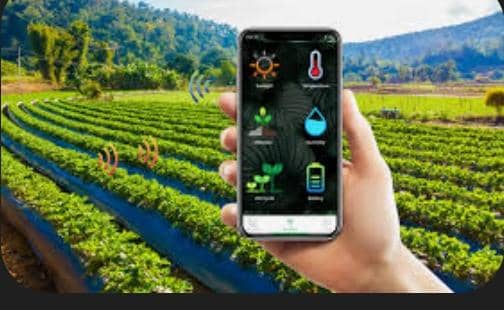
Inspiring Success Stories from Around the Globe
The impact of CSA is undeniable, with farmers across continents reaping the benefits:
Africa: Smallholder farmers adopting drought-resistant crops and no-till farming have reported up to a 50% increase in yields.
South America: Precision agriculture combined with agroforestry has cut greenhouse gas emissions by 30% while boosting soil fertility.
These real-world examples showcase how CSA fosters resilience, productivity, and sustainability, no matter the farm’s size or location.
Challenges to Scaling Climate-Smart Agriculture
Despite its potential, CSA faces significant hurdles:
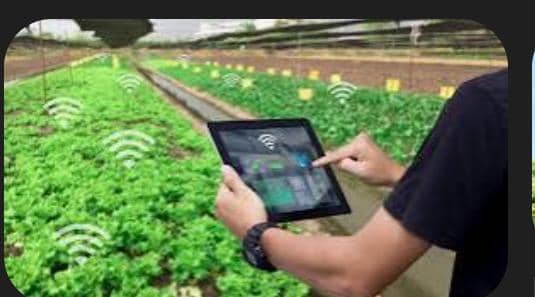
Cost of Implementation: Advanced technologies like soil sensors and irrigation systems can be expensive.
Lack of Awareness and Training: Many farmers, especially in rural areas, are unfamiliar with CSA techniques.
Policy Gaps: Governments often lack robust frameworks to incentivise sustainable farming.
Addressing these challenges requires collaboration. Governments, NGOs, and private sectors must provide funding, education, and supportive policies to bridge the gaps.
Embrace Climate-Smart Agriculture for a Sustainable Tomorrow
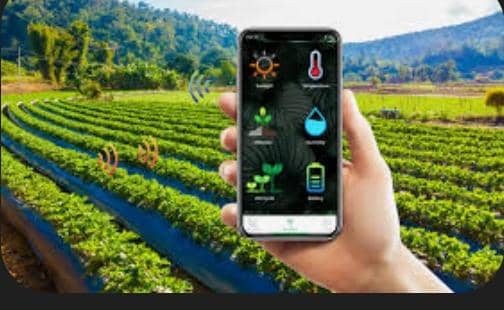
The time for change is now. Climate-Smart Agriculture offers a pathway to a food system that is resilient, productive, and sustainable. By adopting these transformative practices, you can safeguard your farm against climate risks while contributing to a healthier planet.
Take the first step today—explore CSA techniques, connect with local agricultural experts, and start building a resilient future. Together, we can ensure farming thrives in the face of climate change.
Can Farming Adapt to Climate Change and Stay Sustainable?
How can agriculture meet the challenges of climate change while boosting productivity and protecting the planet? Unpredictable weather, rising global temperatures, and extreme climate events are straining traditional farming methods. Enter Climate-Smart Agriculture (CSA)—an innovative approach that enhances resilience, reduces environmental impact, and sustains yields in a warming world.
As one agricultural expert remarked:
“The key to a sustainable future lies in practices that nourish both people and the planet.”
Climate-Smart Agriculture: A Game-Changer for Modern Farming
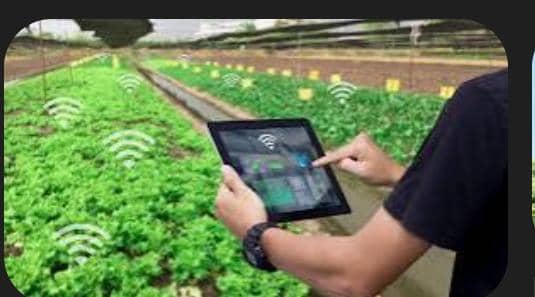
Climate-smart agriculture integrates cutting-edge methods to counter climate change while optimising farming practices. Key strategies include:
Precision Agriculture: Technologies like drones, GPS, and soil sensors reduce waste, conserve water, and optimise fertiliser use.
Agroforestry: Blending trees, crops, and livestock restores soil health, boosts biodiversity, and stores carbon.
Drought-Tolerant Crops: Designed to thrive in arid conditions, these crops ensure food security in water-scarce regions.
Drip Irrigation: Delivers water precisely where needed, reducing usage by up to 70%.
No-Till Farming: Protects soil, retains moisture, and increases organic matter for long-term fertility.
These practices prove that CSA isn’t just a trend—it’s the future of farming. The question is: will you embrace this transformation today?
Inspiring Success Stories from Around the Globe
The impact of CSA is undeniable, with farmers across continents reaping the benefits:
Africa: Smallholder farmers adopting drought-resistant crops and no-till farming have reported up to a 50% increase in yields.
South America: Precision agriculture combined with agroforestry has cut greenhouse gas emissions by 30% while boosting soil fertility.
These real-world examples showcase how CSA fosters resilience, productivity, and sustainability, no matter the farm’s size or location.
Challenges to Scaling Climate-Smart Agriculture
Despite its potential, CSA faces significant hurdles:
Cost of Implementation: Advanced technologies like soil sensors and irrigation systems can be expensive.
Lack of Awareness and Training: Many farmers, especially in rural areas, are unfamiliar with CSA techniques.
Policy Gaps: Governments often lack robust frameworks to incentivise sustainable farming.
Addressing these challenges requires collaboration. Governments, NGOs, and private sectors must provide funding, education, and supportive policies to bridge the gaps.
Embrace Climate-Smart Agriculture for a Sustainable Tomorrow
The time for change is now. Climate-Smart Agriculture offers a pathway to a food system that is resilient, productive, and sustainable. By adopting these transformative practices, you can safeguard your farm against climate risks while contributing to a healthier planet.
Take the first step today—explore CSA techniques, connect with local agricultural experts, and start building a resilient future. Together, we can ensure farming thrives in the face of climate change.
Do you have any burning questions about agriculture? Or maybe there’s something about precision farming that fascinates you?
Feel free to reach out. Don’t forget to follow us on Instagram, Facebook, and LinkedIn to stay updated and join the conversation. After all, who said farming can’t be fun?
if you missed my previous article on Precision Agriculture, kindly click this link.
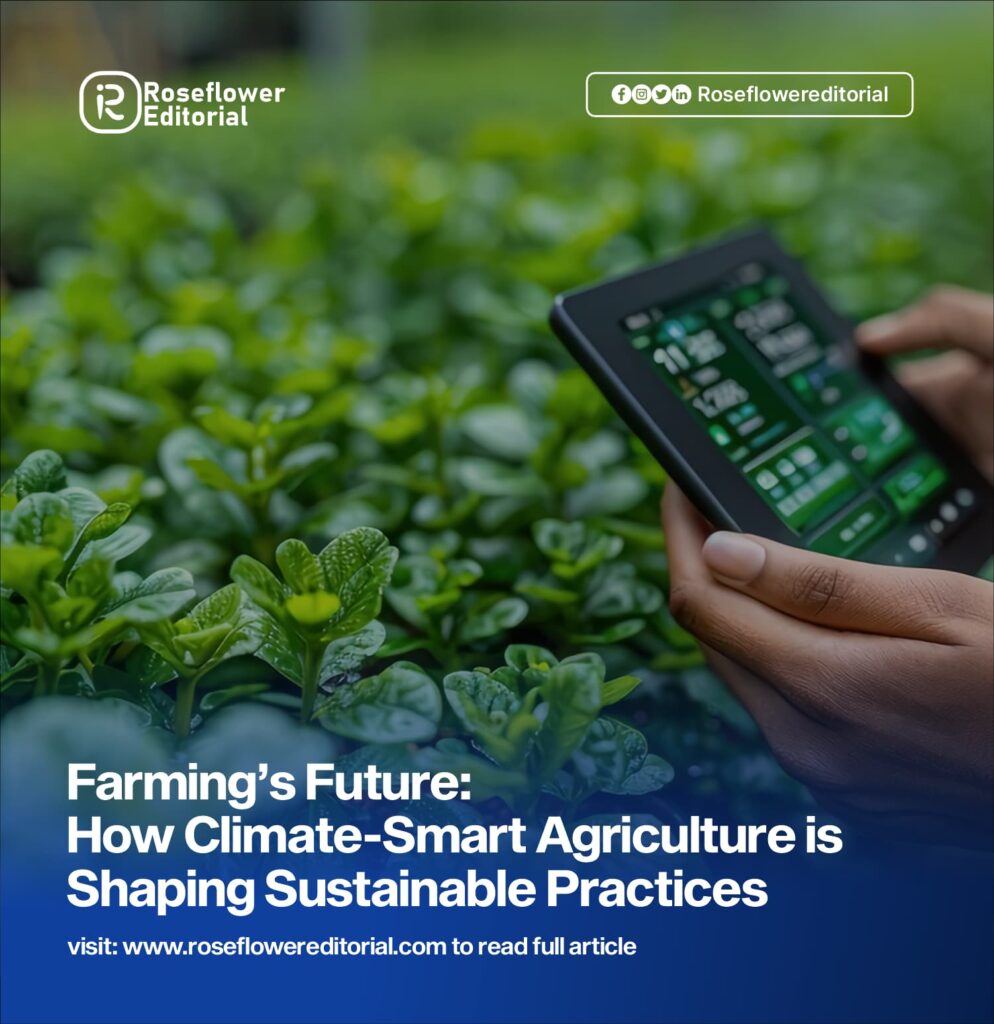












10 Responses
The last time I learnt about precision agriculture. Today I’ve learnt climate smart agriculture.
From the queen herself, thank you, Rhoda.
You keep teaching us new terms in Agriculture.
I appreciate your feedback, Sanusi.
Thank you for this article, Emmanuel.
You’re welcome, I’m happy you enjoyed reading it.
I love your keywords. I’ve learnt a lot from your agricultural content.
This means a lot to me. I appreciate your honest feedback.
The time to embrace Smart Climate Agriculture is now.
You’re right, Hannah, no better time than now.